Recent Posts
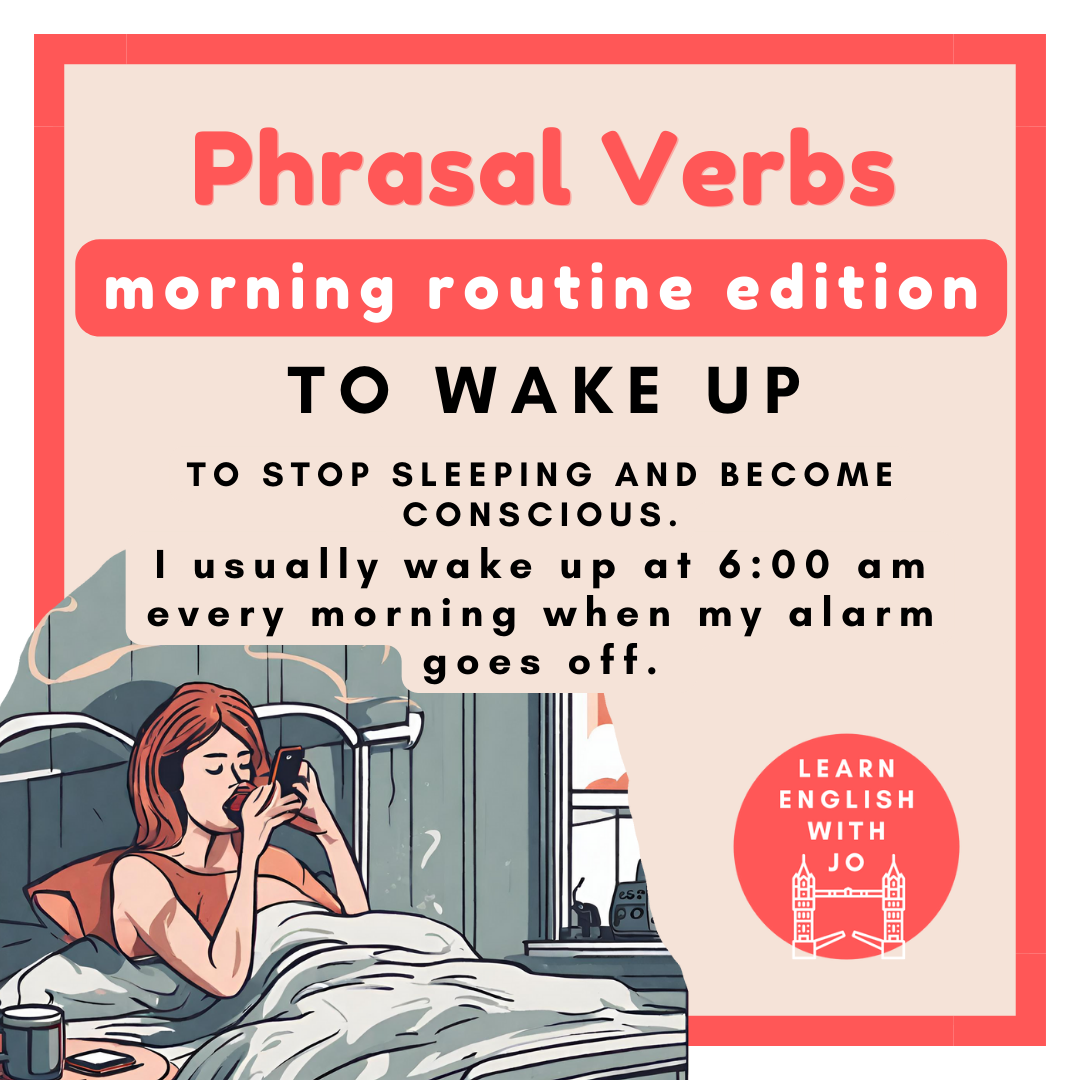
Learn English phrasal verbs for talking about morning routines.
Today we’re going to look at some essential English phrasal verbs associated with morning routines providing meanings and example sentences so that you can confidently talk about your morning habits.
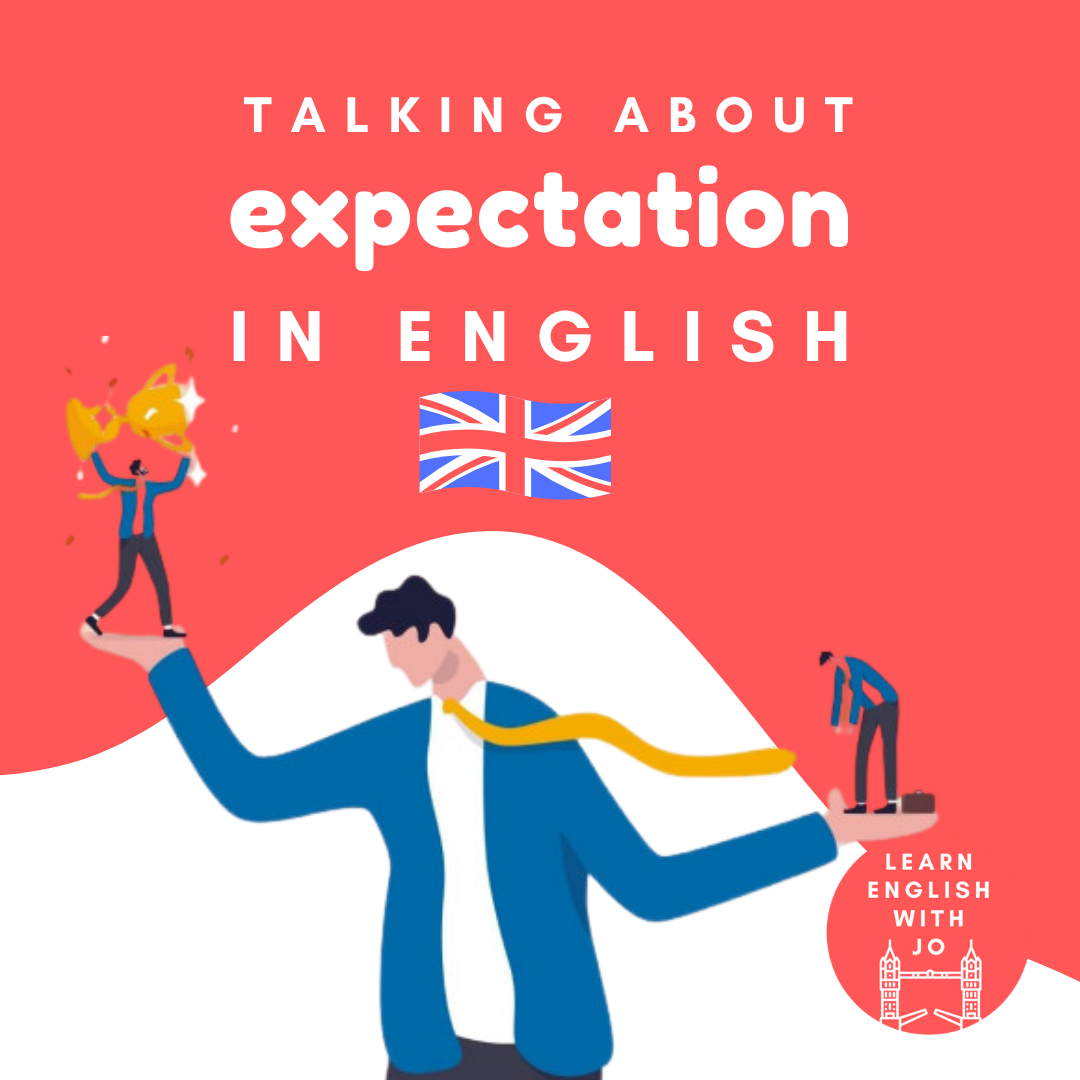
Talking about expectation in English.
This week in one of my English conversation classes we listened to an episode of David Robson’s The Expectation Effect on BBC Radio 4 exploring how our expectations can effect our health, happiness and productivity.
Students discussed some of the issues raised Robson’s book, looking at the language we use to talk about expectations. They also talked about the expectations placed on them by family, friends and society as well as exploring the expectations that they place on themselves in their personal and professional lives. I’ve listed some of the vocabulary elicited from our conversations below.

Talking about taking risks in English.
How often do you step out of your comfort zone, embrace the unknown and take a risk? I’m usually a little bit risk averse, preferring to play it safe and avoid stepping into the unknown. Today we’re going to take a look at the vocabulary and expressions that we can use for talking about risk taking in English.

Common English collocations with money.
Are you an English learner striving to enrich your vocabulary and speak with confidence about everyday life? Understanding and learning collocations—words that naturally go together— can be important when it comes to mastering English fluency.
So let’s look at some common English collocations with ‘money.’ As you review the chunks, think about how you could use them in your own life and try and create a sentence relevant to you.

Learn English slang- double whammy
A ‘double whammy’ is an informal English idiomatic expression used to describe a situation where two negative things happen at the same time or in quick succession, compounding their effects. Essentially, it signifies a double dose of trouble or a particularly challenging circumstance. Let’s look at how we can use it.
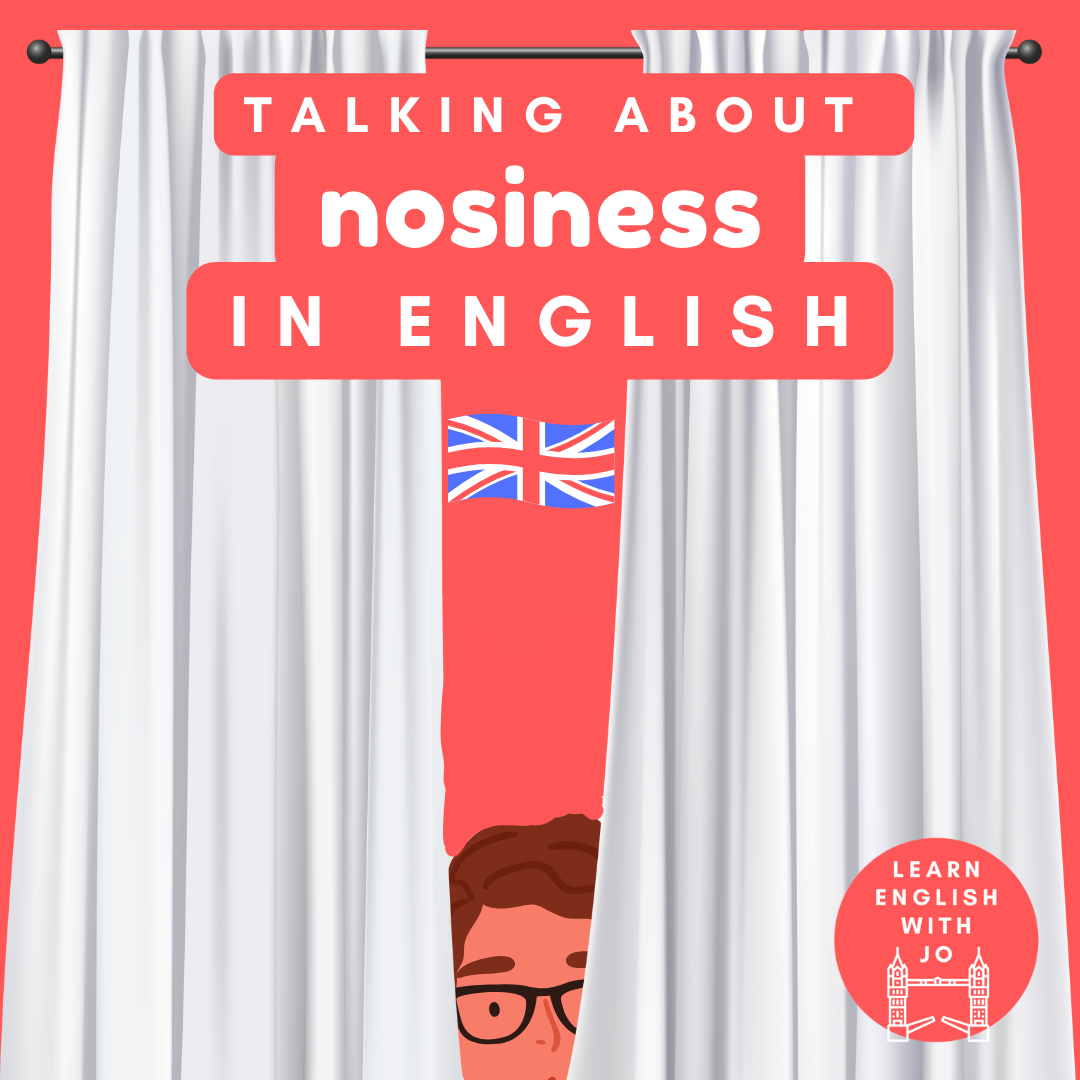
Talking about nosiness in English
Have you ever felt like someone was poking their nose into your business? Or perhaps you've been accused of being a nosy neighbour? Nosiness, the act of being overly curious or intrusive into others' affairs, is a common social phenomenon. Whether it's a busybody in your community or a colleague at work, dealing with nosy individuals can be challenging. Let’s look at ways of talking about nosiness in English.

English phrasal verbs for talking about our pets.
Lots of my students share their homes with animals and the subject of pets often pops up in small talk. In fact sometimes the pets briefly join us in conversation class! Today I’ve got some useful phrasal verbs for talking about our furry friends in English. I’ve included the meaning and an example sentence for each verb.

Learn English idioms with heart
Do you know what it means ‘to pour your heart out to somebody?’ What about ‘to wear your heart on your sleeve?’
In the video below and blog we'll have a look at a handful of English idioms centred around the concept of the heart, exploring their definitions and providing example sentences that demonstrate the depth and versatility of these expressions.
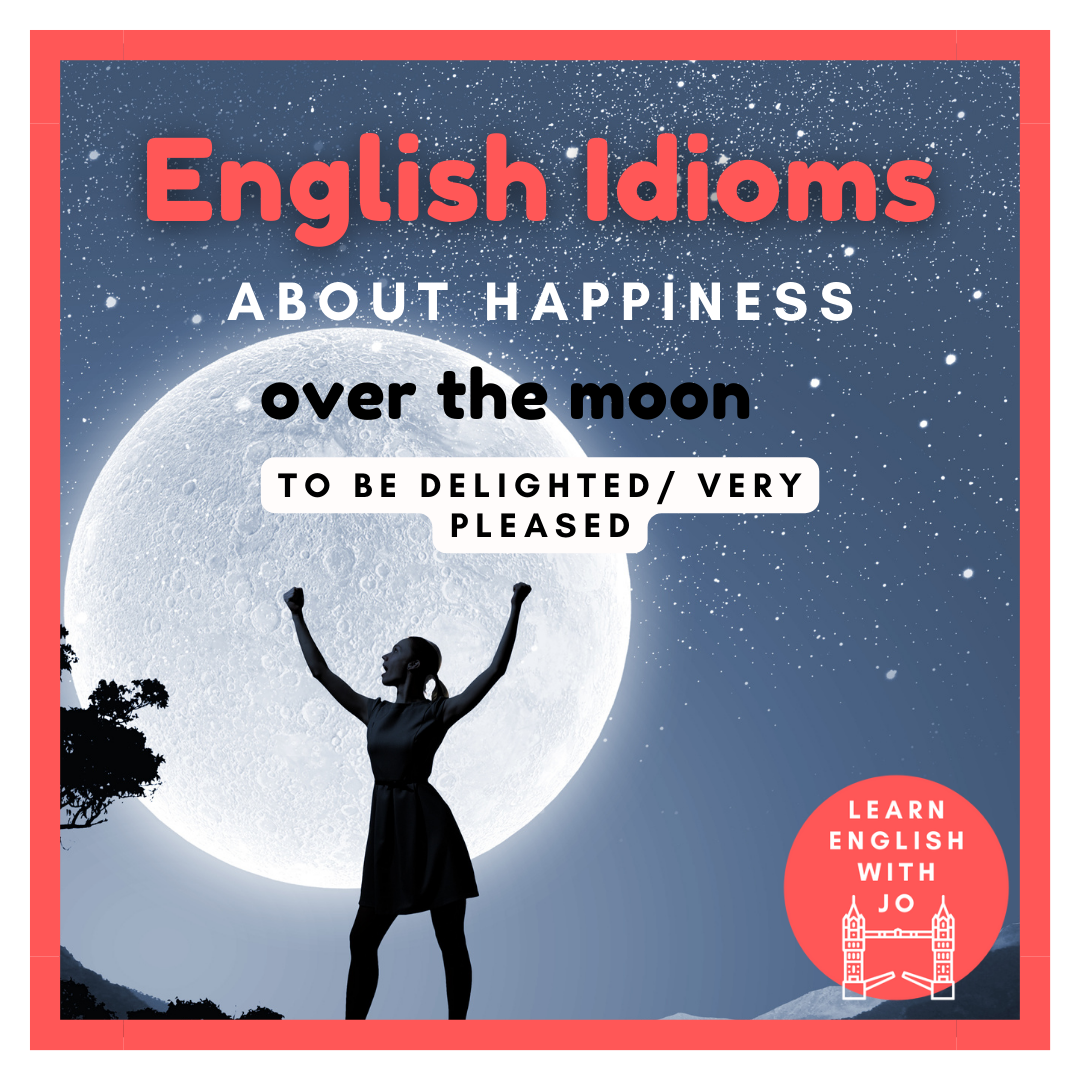
Learn English idioms for talking about happiness
Today we’re going to explore five English idioms for talking about happiness, looking at their meanings and how they can be used in sentences.
Learning English is not just about mastering grammar and vocabulary, but it's also about understanding the nuances of expressions that English speakers use in daily conversations. Next time you’re feeling particularly happy, try one of these!

Alternative ways to say ‘very' in spoken English
When it comes to expressing intensity or emphasising a point in English, the word ‘very’ often takes centre stage. However, using the same word repeatedly can make your speech seem a bit monotonous and less engaging. Exploring alternatives to ‘very’ isn’t just about diversifying your vocabulary but also about enhancing your communication skills and sounding more natural and comfortable in the language.
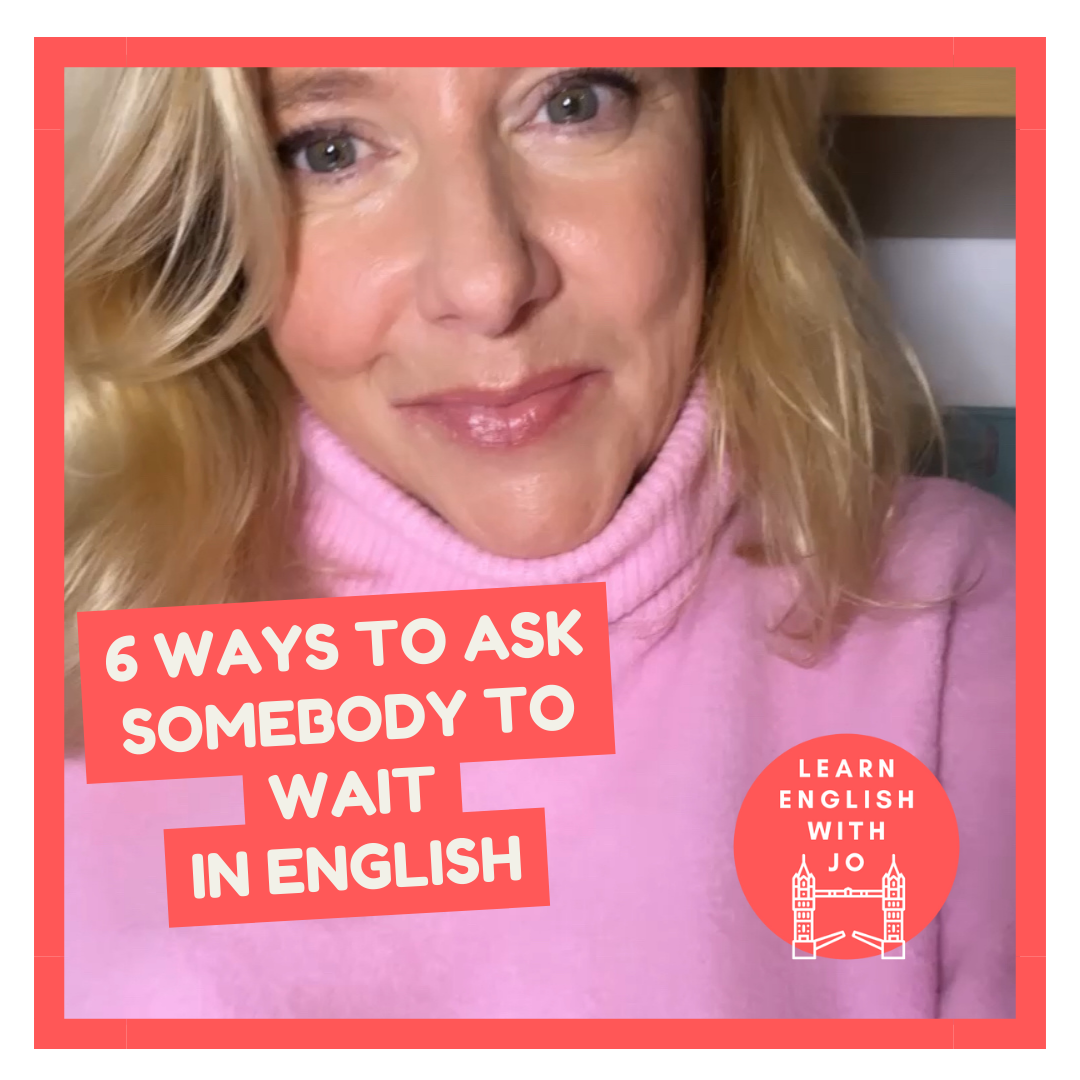
Learn 6 ways to ask somebody to wait in English
In today’s super fast-paced world, being able to ask someone to wait politely in English is an essential skill. Whether you're catching up with a friend, managing work responsibilities, or simply need a moment to gather your thoughts, using the right expressions can make a difference.
If you can’t immediately attend to somebody then simply abruptly saying ‘wait’ or ‘wait please’ can come across rather rude.
So, let’s look at some of the more polite ways you could ask somebody to wait in English.

Talking about disappointment in English as a second language.
In a speaking lesson this week, my student and I looked at an article in which the writer described experiencing a crushing disappointment. It’s a universal feeling that we all experience at some point in our lives. Whether it’s not getting the job we interviewed for, failing an exam or simply being let down by a friend at the last minute, the sense of disappointment can leave us feeling a bit deflated, at best.

Pumpkins, bunnies and sausages. Terms of affection for young children in English.
Within the English language there is a huge array of charming, cutesy terms and expressions that adults use to address young children. From peanut to munchkin, sweetheart to honey; let’s have a look at some of them.

Business English - learn phrasal verbs for problem solving at work.
Do you have to regularly speak English at work? Lots of my students are professionals who lack confidence in speaking English in the workplace.
Mastering phrasal verbs related to problem-solving can help you to navigate challenges at work and contribute to successful teamwork. In this blog post, we will explore key phrasal verbs commonly used in problem-solving scenarios and provide definitions and examples to help professionals like you, enhance your language skills.

English collocations with future
Are you ready to future-proof your English? Today, we're looking at collocations with the word ‘future,’ essential phrases that will make your English sound more natural and fluent.
Why learn collocations?
Studying common collocations is a valuable investment in your English learning journey. It goes beyond memorising individual words and fosters a deeper understanding of how words work together in the language. As you integrate collocations into your conversations, you'll find that your fluency and confidence improves, leading to more effective communication.

English idioms about water (with meanings and examples)
My students love learning new idioms, so today I’ve got five idioms related to water, including their meanings and example sentences.
Remember to make a note of any that you think might be useful in your life and if you’d like to book a conversation class with me to practice your spoken English then get in touch.
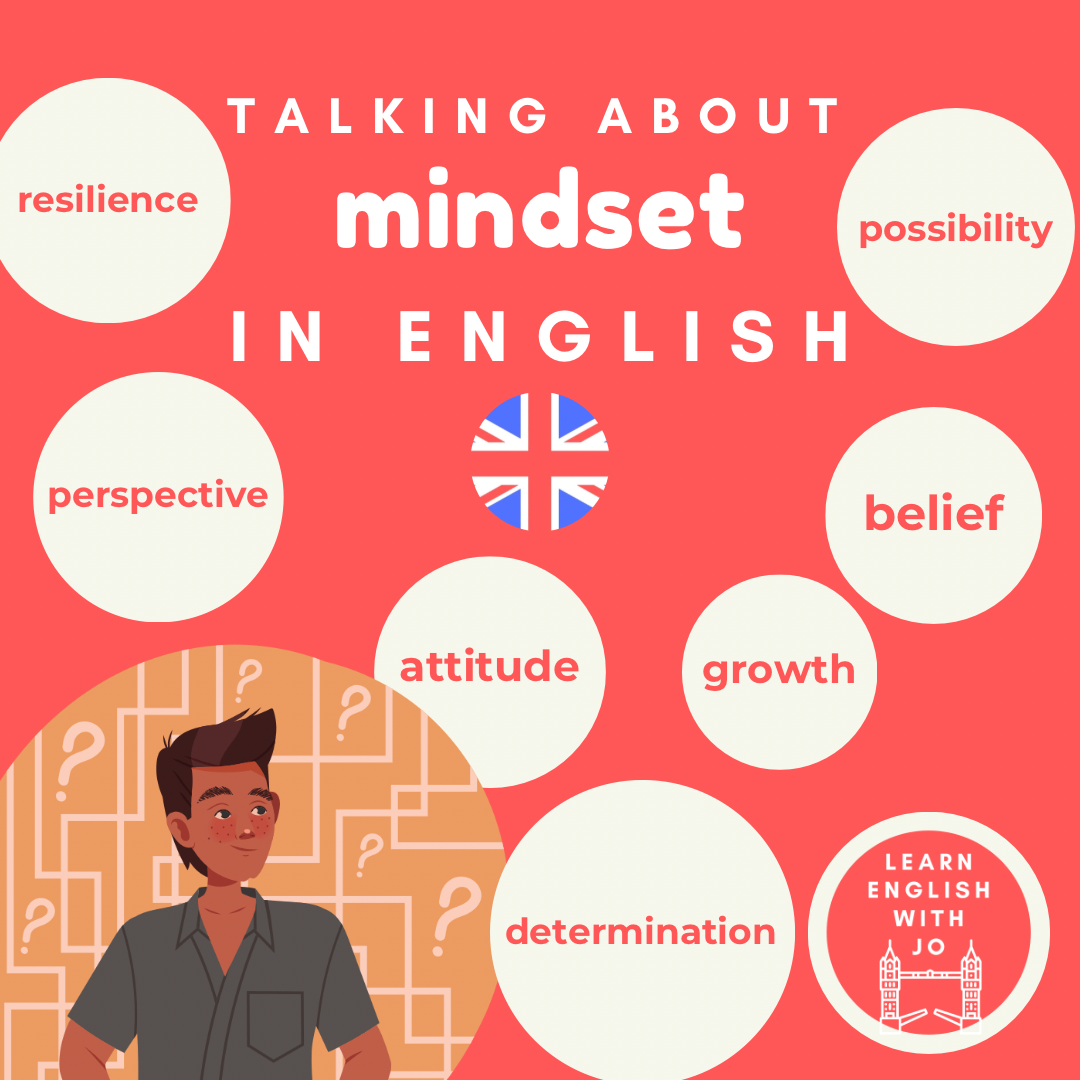
Talking about mindset when learning English as a second language
Embrace a growth mindset - One of the fundamental principles of successful language learning is having a growth mindset. Instead of viewing language proficiency as a fixed trait, people with a growth mindset believe that their abilities can be developed through determination, dedication, commitment and curiosity.
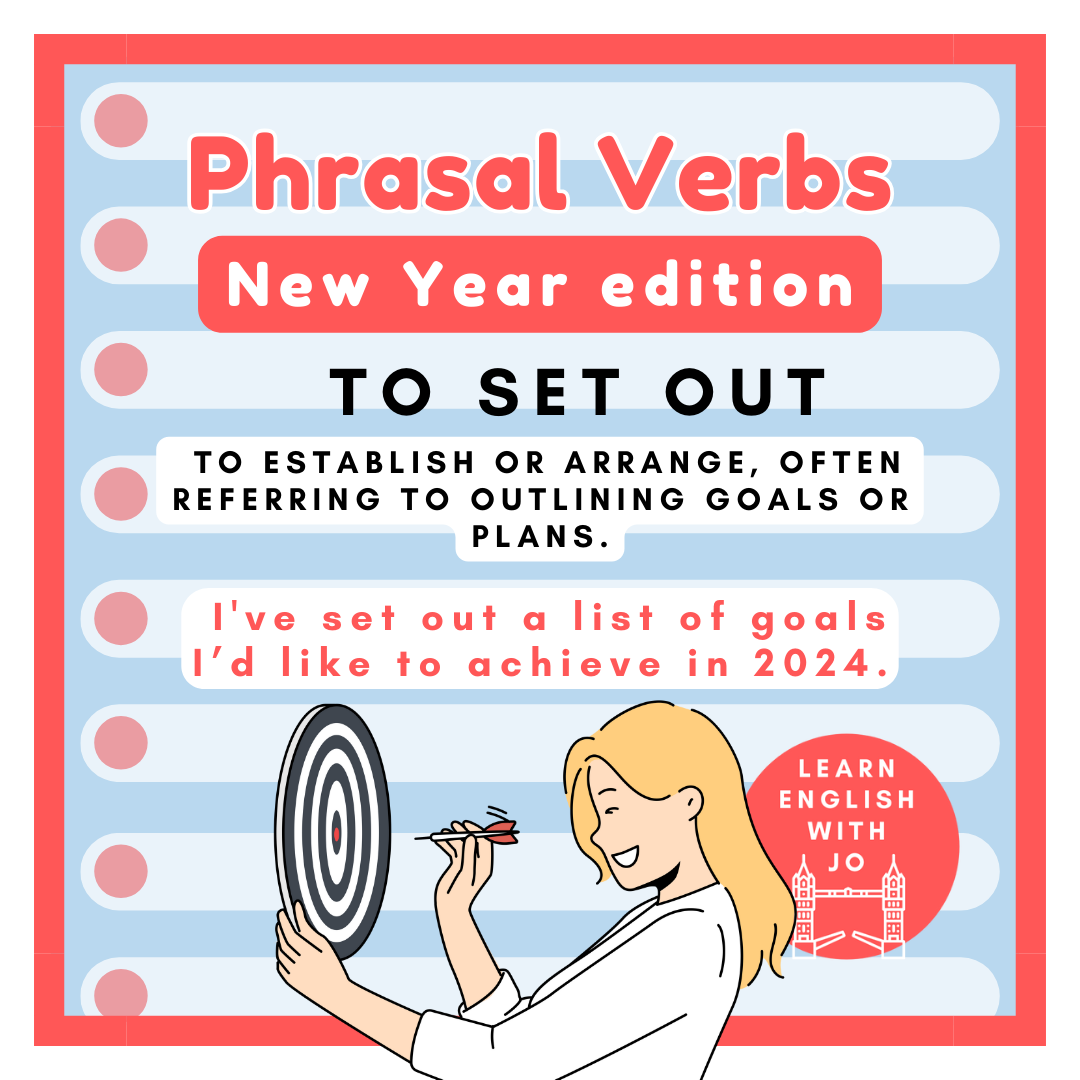
Goodbye 2023, hello 2024. English phrasal verbs for the end of the year.
As we say goodbye to 2023, it's time to reflect on the past 12 months and set the stage for the upcoming year. English phrasal verbs offer a dynamic way to express our experiences, achievements, and aspirations. In this post, we'll explore 10 phrasal verbs that assist us in talking about the year gone by and help us articulate our plans for the future.
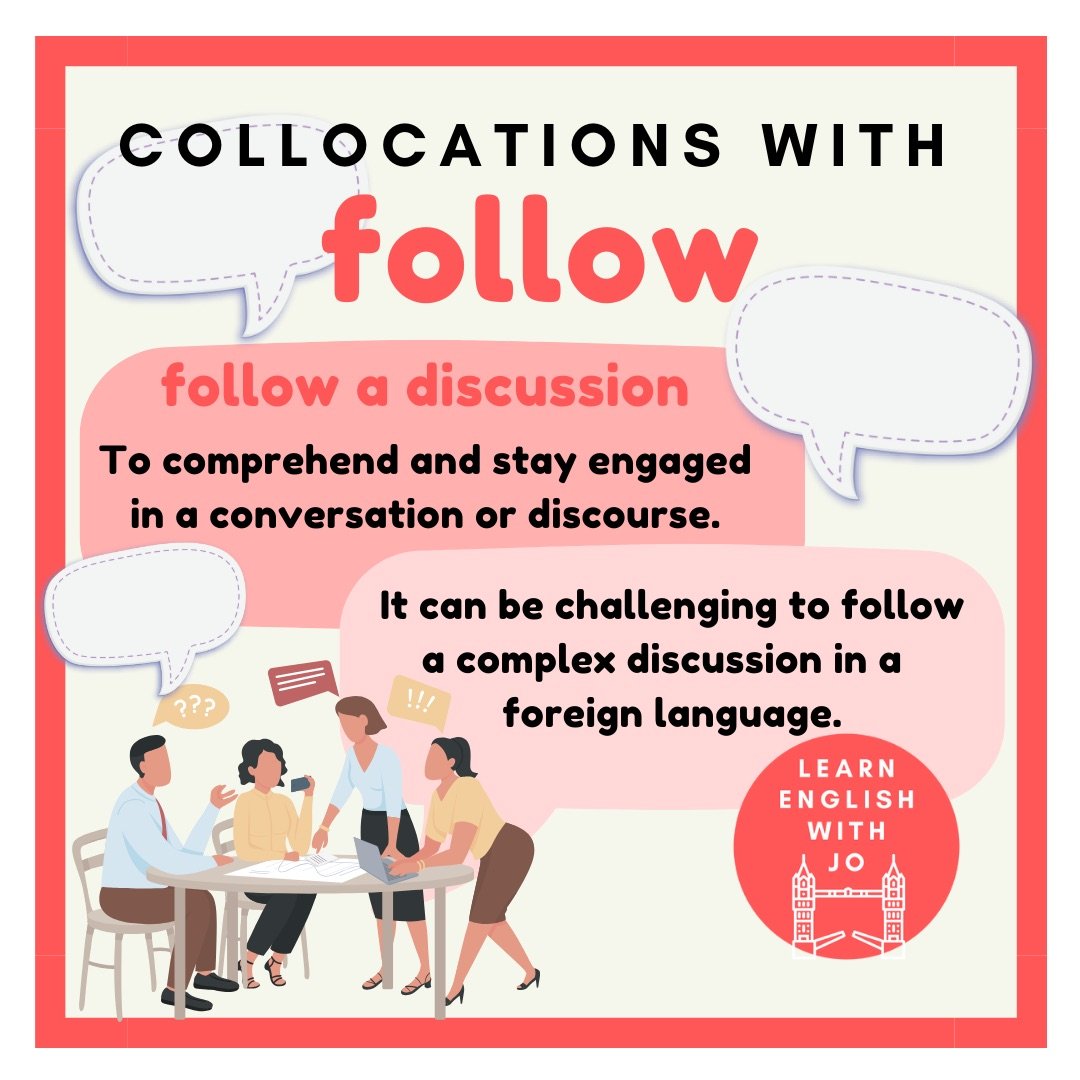
English collocations with follow.
This mini English lesson focuses on essential collocations with the word "follow." Collocations are a common way in which words regularly go together. It's like a partnership between words that often appear side by side or near each other. Learning collocations can help you speak English more fluently. If you're an ESL student looking to improve your English language skills then keep reading!

Talking about partying in English for ESL students.
It’s December and supposedly ‘party season’ when your social calendar should be packed full of festive fun, so today I’ve got a variety of English phrases and expressions for talking about parties; Summer parties, Christmas parties, kids’ parties, all parties! You can use these English phrases all year ‘round.
